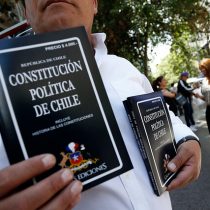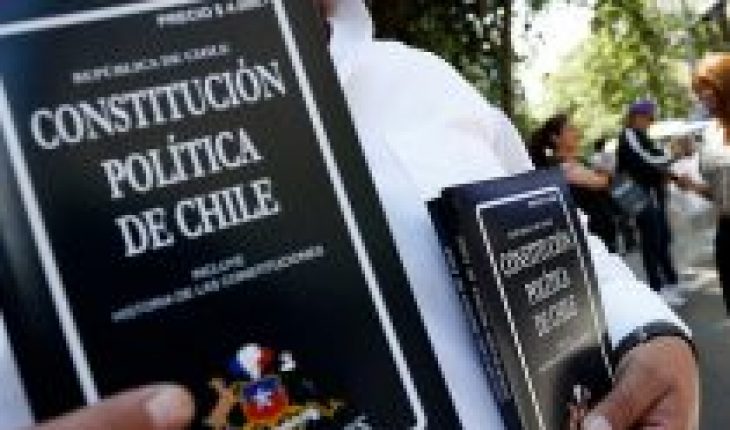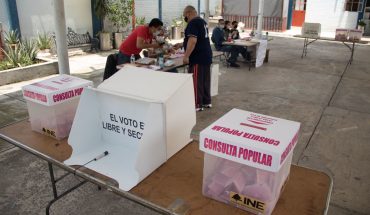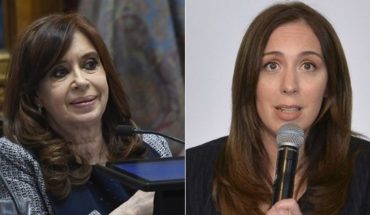
As is common in each election – at the time of the balance sheets – finally “no one lost” and most agreed that the complex structure of the primaries, the crossing of real competences and the small group of agreed communes, make it very difficult to project in the future an electoral behavior of citizens based on sunday’s outcome. But that does not mean that a deeper analysis should be carried out, especially on how they will have to stand in front of each other, in opposition, from here to the formation of the lists of the conventional constituents.
With their feet on the ground and off the record inside the parties and pacts, several agree that there is no way to reach a single list with a view to the choice of constituents, except now that from the Broad Front (FA) the gravitation of the sector moved one step to the left and, on the contrary, , in Constituent Unit one towards the center. Since the latter bloc they lamented the “loss of influence” of the flatnest sectors to the agreements, as would DR and Social Convergence – by Gabriel Boric – they said.
Beyond the publicly expressed and pre-primary will, more convinced of the impossibility of bringing the entire opposition together into a single list, this is due to the high level of contrasts of the different political projects on both sides, but mainly because of the lack of a common look at how the country has to move forward and what project they are betting on. In this context, the latent risk of reaching with more lists than officialism, projects an unfavourable mathematical result, since the current electoral system rewards large conglomerates and punishes the little ones, so keeping 78% of the Apruebo would be an uphill task.
“Being a minimum number of constituent quotas, in this case the unit excludes you,” they noted from the Constituent Unit block. It’s just that no one has the real will to be out of competition.
Less than a week after the primaries, the alliance policy debate returned to the partisan internal and pacts. Because of the number of voters who participated in the primary of both sectors of the opposition, Constituent Unity is the one who stood at the forefront of the board, and they reflect it by pointing out that, when talking about proportional negotiations, it would have been established that the scale is one to four in its favor.
From sectors of the Broad Front, the interpretation of the result points to the impossibility of competing with the “electoral machinery of the haul of the former New Majority”, and warn that the results should be measured against the “lifetime of coalitions and based on triumphs in the most symbolic competences”.
While in Constituent Unity it was the Christian Democracy that prevailed, running the axis towards the center, on the Broad Front it was Common, moving it to the left. In this way, the theory of the two poles of the sector, which for several was transformed into a relief, is finally sealed, because they believe that the level of tension should be lowered, since there would now be a greater degree of autonomy to define positions on the different topics of debate of a national nature.
The goal, they add, remains presidential, and the possibility of arriving with a single candidate for the second round, because the “mirroring” of the single list, thinking about the choice of constituents, “never ceased to be utopia”, they point out.
In this sense, analyst Victor Maldonado of the DC stated that two poles are “created, two ways of understanding the opposition, which will have to dialogue to finally lend support to each other, depending on who gathers the most popular support. This is determined by how the proportions are distributed, which in this case would be one to four in favor of the Constituent Unit.”
From Christian Democracy they point out that you can no longer work without them in that block, and RD is no longer the interlocutor in the FA.
From that there are two interpretations. On the one hand, from outside the PS they accuse the discomfort of this ideological adjustment in the block, as it would generate a greater decoupling between the leadership of the party and its bases. This, based on the incomcomodad that has been in the party for a long time, mainly regarding the impossibility of dissealting the DC in the face of the behavior it had on several of the crucial issues of parliamentary discussion and which ended up fracturing repeatedly to the opposition itself. Examples include tax or pension reform, among others.
On the other hand, people who know of the daily work of the Socialist directive point to the glass half full, which would mainly mean that the PS could now have a partner of weight “capable of doing the dirty work”, that is, separating waters with the PC, thought of a presidential primary. Faced with the increasingly real possibility of not reaching with a candidate of its own, it would make things easier for them, thinking of a greater feasibility of folding a candidate within the pact, in this case, and for now, Heraldo Muñoz or Francisco Vidal.
Since Commons, its president, Jorge Ramirez, points to a very clear political dimension to the border that citizens expect from each of the coalitions. In some way or another, the DC’s triumph is a complex situation for the more progressive sectors that are in Constituent Unity, and their base militancy probably sees them much closer to the FA than to the DC.
Back on the ground of the victors and the vanquished, there are those who were out of microphone, from the Constituent Unity sector, dare even to say that “the FA fashion brand” was over, while others hinted at the end of the replacement thesis, which suggested that the new political project of the Broad Front would conquer the disappointed of the former Concertación. “That’s over, ” they sentenced from the PPD.
In response to that, from the frontamplism they first call for a stop analyzing everything under the logic of the binominal, and accuse a “terrible mistake” of reading in the vision of the PPD. They recall that for the final presidential they had been similarly re-injured and that, when it comes to “great definitions,” the electorate that they had accused that did not exist tripled.
Election analyst Axel Callís noted that “so few people voted that there is no chance of projecting any results by April 11. In this context, all the conclusions that can be drawn, within an area within the pacts, are weak.”
He added that “all parties are weakened, because they were not even able to mobilize their hard asset. This is a setback from any primary and the least participatory, which was in 2016, because where there were primaries almost 5% of the electorate moved and here it did not reach 3%.”
Resquemores towards the independents
After the outcome of the plebiscite on 25 October, mainly the one that the Constitutional Convention has drawn even more votes than the Apruebo, for everyone in the world of politics was the last great sign that citizens are seeking another type of representation, different from that of the parties. In this sense, it was understood that the meaning of that vote had a unique purpose: that it is the independent world that writes the new Magna Carta.
This, however, has become a great headache, mainly because it means giving up spaces. And while several have been the communities that have opened up to integrate people from the independent world, and from different social organizations, there are a variety of resquemores that clash with what would be the citizen will.
And it is that, since it is not a speech in line with ambient temperature, the independents take the wording of the new Constitution opens a great crossroads: to whom they will respond, which would carry with it the risk of delivering spaces without guarantees of a complementary vision.
“Independents are not groups, they are denomination of diverse people, there is no reason to understand that some independent interpret the others. And they are going to fragment, which is happening,” they indicate in the Constituent Unity pact. “The grace of politics is that there is a habit of reaching agreements between people who do not naturally agree. Independents don’t have that habit, they don’t bring them together at all, that’s doom,” they warn.
Under this prism, the debate in Congress on independents has not met – according to several sectors – with the required times, thinking that January 11 marks the deadline for the registration of candidates.
This Thursday the project will continue its processing in the Senate Chamber, then return to the House, where there has been greater consensus regarding the demand for sponsorships for individuals and also for lists, as well as the unique key to not having to get sponsorships on the ground in the midst of the pandemic.
The difficult debate that needs to be settled and which is well alerted from the independent world has to do with sub-conditions. Initiative entered by the Broad Front, but which in the House was rejected even with opposition votes. In this houseor, the discussion that took place within the parties is that, by being unable to subate between stores that are part of a larger pact, they consider that it would not be fair for the independents to be able to do so.
For Callís, “35% of the elected in Constituent Unity are independent with their own prestige. Five of the 16 winners are independent and therefore give votes to The Constituent Unity parties. In that context, the DC appears as the least weak, not the strongest,” the analyst says.





